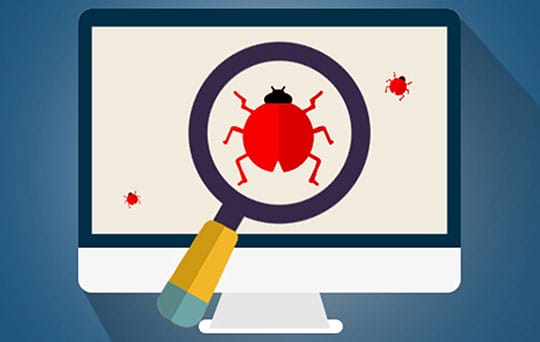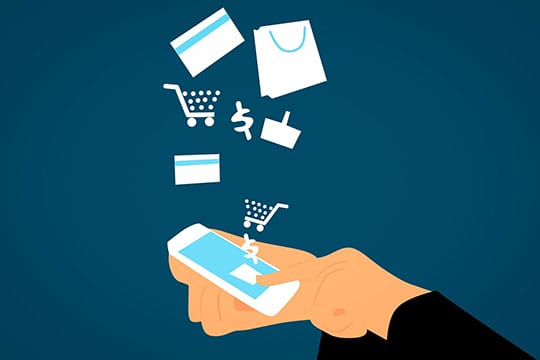The proliferation of the Internet and digital devices has increased access to information. Unfortunately, the internet and advances in digital technology have also given a platform to scammers. Reports from various analysts like the Food and Drug Administration indicate that these online scams are getting more sophisticated by the day.
Here are some examples of the most popular fraud online scams and how to prevent getting scammed.
Supplements Fraud

The FDA has issued letters to consumers warning them of health fraud schemes. FDA defines fraudulent as to any product that is marketed as being an effective cure, without verified scientific proof.
These modern snake oil salesmen sell a wide range of products ranging from anabolic steroids to supplements to treat Alzheimer’s. They often target seniors who are perceived as not being tech savvy. Victims are redirected to fake magazine pages endorsing the product.
Recommended for you: Internet Security Tips - Use VPN to Protect Personal Data from Online Thieves.
Free Trial Scam

But a good number of these health fraud scammers do not stop at selling fake supplements. They often trick buyers into signing up for subscriptions that they did not consent to. According to a study done by the Better Business Bureau, approximately $1.3 billion has been lost through these types of schemes in the last decade.
Often, they will entice you with a risk-free trial. You will likely be charged a small amount of shipping around $1.95. You will receive a free sample to try. But the trial period usually starts when they send the product. This means you will be charged as soon as, or even before the products arrive at your door.
Even though most online scams often target the elderly, in this type of scam, the BBB reports that many victims were young. The free trial offer entices young people in their 20s and 30s through social media. Substandard products such as wrinkle creams, diet pills, anabolic steroids, are promoted to young people on social media.
Using these online platforms, the scammers have found ways to make their pages look legitimate. To boost the image of their Facebook and Twitter pages they buy followers. Victims may also be redirected to a page showing endorsements of supplements and anabolic steroids from top personalities like Oprah or from TV shows like Shark Tank.
Phishing

Phishing is a technique that has been around for decades, at least since the early 1990s using AOL instant messengers and email systems. In its simplest form, it involves luring victims to give up their passwords through a network of fake websites or emails.
Despite being around since the beginning of the Internet, there are more than 100,000 phishing attempts made every month. In recent times, phishing has grown in sophistication. Both the social engineering and the technical side of these online scams have become more complex.
The Anti-Phishing Working Group reports that the number of phishing sites using HTTPS and SSL certificates has increased to a new high. This is to create the perception of credibility as they adapt to online users who are becoming more vigilant. The scammers have also increased their attacks on SaaS software and mobile applications.
It is also becoming difficult for users to tell apart the duplicate accounts created by scammers. You may receive a message from a colleague asking you to download a file. What many people do not realize on time is that the account is a duplication of the colleague’s account. The scammers then get the opportunity to install malware on your computer.
Once they take over your account, they look out for personal information they can use to get into your other accounts. They may steal your identity in order to acquire information about your organization or colleagues.
You may like: How Data Protection Changes Affect Small Businesses?
Familiarity Scams

Perhaps some of the most sophisticated online scams are the familiarity scams. It involves using the identity of people you know to entice you to buy products or send personal information. A typical example is the famous Nigerian scam where they entice you with an attractive monetary offer from a West African prince. The catch is that you have to send some money to allow access to the said account.
Even though many people are aware of the Nigerian 419 scam, some analysts believe that these scammers are still defrauding many people. In recent years, they have made their techniques much more sophisticated. They have adopted tools that allow them to narrow their focus to the most vulnerable targets.
For example, the Federal Bureau of Investigation reports that scammers using similar techniques as the 419 scams to target businesses. Small businesses are proving to be a profitable target for this $5 billion scheme. This is because many small businesses do not have ways of filtering out the countless emails they receive on working days.
Victim of the business email scheme will unintentionally download and install ransomware or scareware applications that demand money in exchange for fixing an often-fictitious problem. They may persuade you to let them have remote access to your computer. Once they have access, they’ll attempt to get financial or personal information.
Even though the Nigerian scam isn’t technically sophisticated, a 2018 article on Wired revealed that it continues to evolve, including its social engineering aspect. For example, the scammers may acquire a still image that they use on Skype calls to impersonate people close to you. Once the transaction is done, the victim realizes that it was a still image and not the Skype video lagging behind.
Not all cases are performed by strangers pretending to know the victim.
According to the National Adult Protective Services Association (NAPSA), 90% of the people who financially exploit seniors are those closest to them: trusted people such as caretakers, neighbors, family members, doctors, legal advisers, and even religious leaders. Seniors often make themselves even more vulnerable by readily sharing their banking information with friends and family.
Some of the common ways family members scam seniors include:
1. Abusing the power of attorney:
 Many seniors are immobile due to health complications that come with aging. Since they need people to run errands for them, it is only natural that someone close is given privileges such as the power of attorney. Unfortunately, not everyone close to us is trustworthy.
Many seniors are immobile due to health complications that come with aging. Since they need people to run errands for them, it is only natural that someone close is given privileges such as the power of attorney. Unfortunately, not everyone close to us is trustworthy.
2. Abusing representative payee privilege:
 A representative payee is someone appointed to receive social security benefits and manage those benefits on behalf of the beneficiary. Just like with the power of attorney, this privilege is also frequently abused by those close to seniors. The payee is supposed to record and disclose all payments received and how they were dispersed (expenses, bank deposits) but sometimes some of them misappropriate funds either by buying things online or using them to make illegal transactions.
A representative payee is someone appointed to receive social security benefits and manage those benefits on behalf of the beneficiary. Just like with the power of attorney, this privilege is also frequently abused by those close to seniors. The payee is supposed to record and disclose all payments received and how they were dispersed (expenses, bank deposits) but sometimes some of them misappropriate funds either by buying things online or using them to make illegal transactions.
3. Joint Bank Accounts:
 NAPSA also notes that joint bank accounts are also often used to defraud vulnerable seniors. Someone close to an elderly person may suggest adding their name to the bank account, supposedly to make it easier to run errands and take care of expenses but actually to make it easier to steal.
NAPSA also notes that joint bank accounts are also often used to defraud vulnerable seniors. Someone close to an elderly person may suggest adding their name to the bank account, supposedly to make it easier to run errands and take care of expenses but actually to make it easier to steal.
4. Extortion:
 Online scammers and other fraudsters sometimes target seniors who are vulnerable by threatening them with physical or financial harm (such as emptying their bank accounts) if they do not comply with the demands. Seniors are perceived to have low technology literacy, making them a target of family, friends, and strangers.
Online scammers and other fraudsters sometimes target seniors who are vulnerable by threatening them with physical or financial harm (such as emptying their bank accounts) if they do not comply with the demands. Seniors are perceived to have low technology literacy, making them a target of family, friends, and strangers.
You may also like: Data Encryption: What is Encryption? Types of Encryption and Security!
How to Avoid Online Scams

You can avoid becoming a victim of these online scams by observing the following simple rules:
1. Use due diligence:
 With products sold online, if the deal seems too good, think twice. Better still, for medications, you can:
With products sold online, if the deal seems too good, think twice. Better still, for medications, you can:
- Double check the clinical trials by doing a simple Google search.
- Research and check health claims on legitimate websites such as PubMed.
- For supplements such as wrinkle creams, anabolic steroids, or vitamins, research information is readily available to access on the recognized website.
2. Two-factor authentication:
 To avoid impersonation and phishing businesses should consider using two-factor authentication. This involves using a password and another factor such as your mobile phone to log into your accounts. Biometric authentication such as the use of fingerprints may be implemented for the most sensitive accounts. That way, even if scammers get the password, they still need the second factor to log in and clean out the account.
To avoid impersonation and phishing businesses should consider using two-factor authentication. This involves using a password and another factor such as your mobile phone to log into your accounts. Biometric authentication such as the use of fingerprints may be implemented for the most sensitive accounts. That way, even if scammers get the password, they still need the second factor to log in and clean out the account.
3. Wild claims:
 Watch out for unsubstantiated claims of supplements and other products that claim to cure for cancer or diabetes, or anabolic steroids with no serious health risks. They may also make conspiracy claims such as “the government is working with the pharmaceutical companies to suppress this wonder drug”.
Watch out for unsubstantiated claims of supplements and other products that claim to cure for cancer or diabetes, or anabolic steroids with no serious health risks. They may also make conspiracy claims such as “the government is working with the pharmaceutical companies to suppress this wonder drug”.
4. Protect Your Computer:
 Most of these frauds use a combination of techniques, including tricking you into installing malware or ransomware on your computer. Use a recognized malware protection program such as Malwarebytes, AVG, or Bitdefender. Ensure you keep your website and software updated regularly.
Most of these frauds use a combination of techniques, including tricking you into installing malware or ransomware on your computer. Use a recognized malware protection program such as Malwarebytes, AVG, or Bitdefender. Ensure you keep your website and software updated regularly.
Observing these simple rules and applying should keep you safe from most scammers.
This article is written by Patrick Bailey. He is a professional writer mainly in the fields of mental health, addiction, and living in recovery. He attempts to stay on top of the latest news in the addiction and the mental health world and enjoy writing about these topics to break the stigma associated with them. Follow him: Twitter | LinkedIn.





